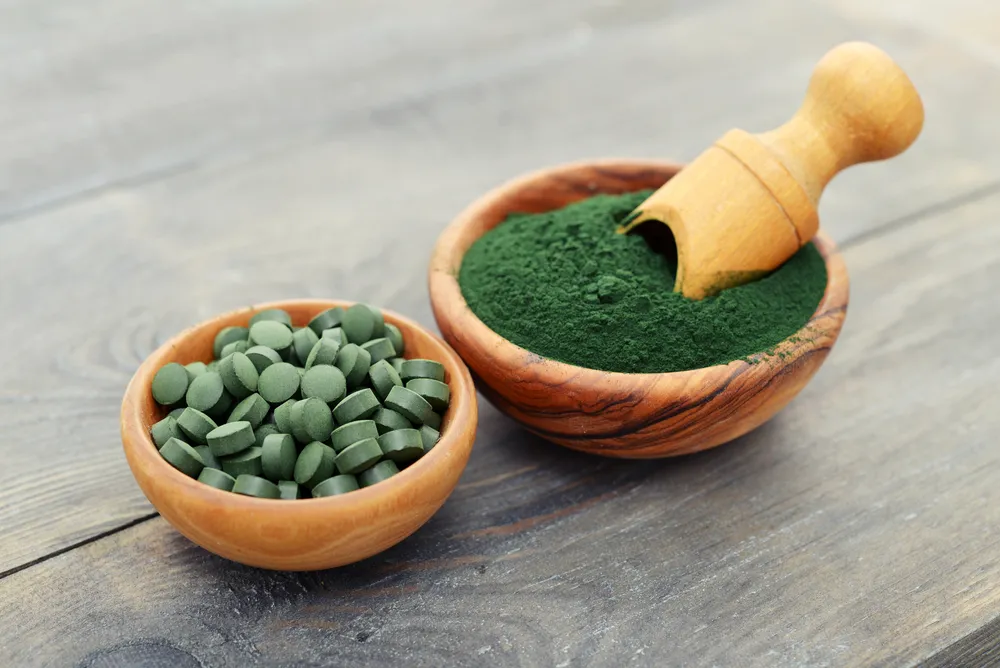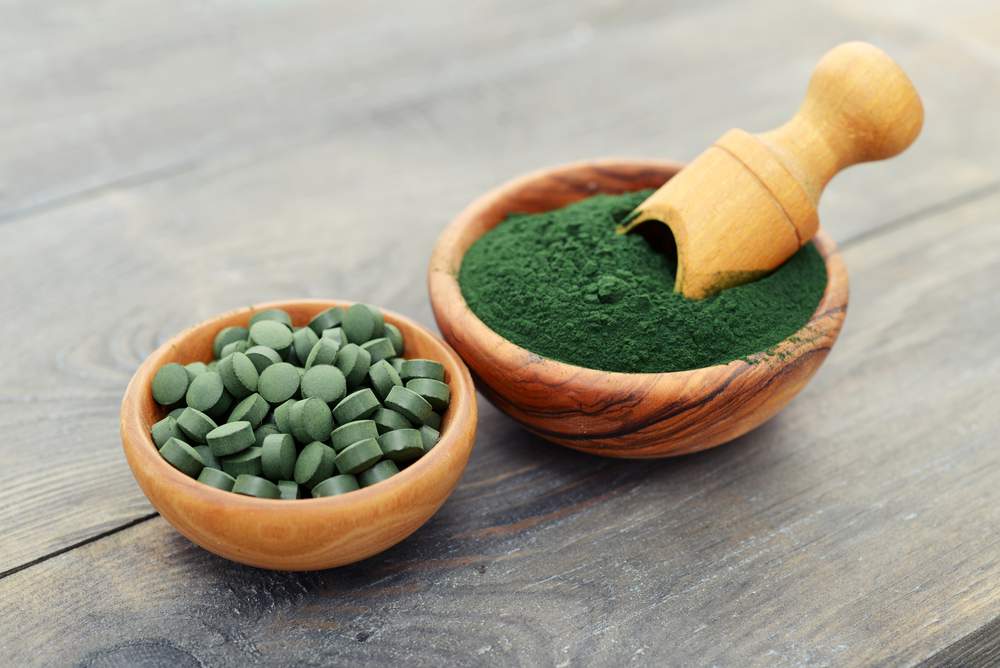Superfoods are grocery items that can do your body and your overall health a whole lot of good. And, with an online search, you can learn more about one of the most popular superfoods available: spirulina.
Spirulina is primarily consumed as a powder, which is more absorbable and can be easily added to smoothies or other drinks. If you’re wondering why spirulina is considered such an amazing superfood, here’s why people are flocking to it.
Spirulina is Extremely Nutritious
Spirulina is arguably the world’s most nutrient-dense food. It’s no surprise that in 1974, during the United Nations World Food Conference, it was named the “Best Food for the Future” and it’s recommended by the World Health Organization as a treatment for malnutrition.
One tablespoon of spirulina (roughly seven grams) contains four grams of protein, 15 percent of the recommended daily allowance of vitamin b1 (riboflavin), 21 percent of the RDA of copper, and 11 percent of the RDA of iron.
If that wasn’t enough, it’s also a great source of fatty acids, more specifically omega-6 and omega-3, and also packed with manganese, potassium, and magnesium. The high protein content in spirulina also makes it popular with vegans as a protein source, helping anyone who’s cut out meat and animal products find a great protein supplement.
Spirulina Helps Control Blood Sugar
While everyone could benefit from lower blood sugar levels, this is particularly important for people suffering from diabetes. And spirulina can help diabetics and anyone with blood sugar issues gain control of their levels.
A 2001 study published in the Journal of Medicinal Food tracked a group of 25 people with type 2 diabetes who were given two grams of spirulina per day, and saw an incredible reduction on the levels of blood sugar.
Another study found that HbA1c, a marker for blood sugar levels, decreased by as much as nine percent with algae consumption. This is impressive because it’s already known that just a one percent decline in this marker is associated with a reduction of 21 percent in the risk of death linked to diabetes. Adding spirulina into your diet could make a dramatic difference if you’re living with diabetes.
Spirulina Can Lower Blood Pressure
One of the reasons blue-green algae gets its name is the abundance of the pigment phycocyanin. However, this pigment does a lot more than just change colors; researchers have found that it also has antihypertensive effects, which means that it helps with lowering blood pressure.
It seems that spirulina stimulates the production of nitric oxide, which helps dilate and relax blood vessels. This can make it an excellent dietary aid for anyone with hypertension, whether on its own or in connection with other health concerns like pregnancy, heart problems, and even stress.
If you’re suffering from high blood pressure, adding spirulina into your daily diet can help you manage your levels. However, you’ll need to eat quite a bit to affect your blood pressure – consuming just one gram per day has been shown to be ineffective. The ideal dose to see a reduction in blood pressure is around 4.5 grams.
Spirulina May Have Anti-Cancer Properties
There’s plenty of evidence to suggest that spirulina has anti-cancer properties, especially when it comes to oral cancer. Research with animals shows it can reduce the tumor size and its occurrence. One study involving 40 individuals with precancerous lesions in the mouth – often called oral submucous fibrosis (OSMF) – consuming one gram of spirulina daily saw those individuals experiencing better improvement than using the drug Pentoxyfilline.
In India, 87 people with OSMF consumed one gram per day throughout an entire year and saw as much as 45 percent of the lesions vanish. The rate was just seven percent in the control group. However, as soon as they stopped taking it, the lesions reappeared in nearly half of the people.
While spirulina’s effectiveness is still being studied, there’s promising evidence already. It may be a helpful superfood in lowering your risk of precancerous lesions, and it might be able to lower your risks.
Spirulina is Effective Against Candida
Candida species are part of the human body, mainly found in the mucosal oral cavity, vagina, and gastrointestinal tract. While this isn’t a problem in a healthy individual, it can lead to yeast infections and other health woes. In recent years, diets rich in sugar and increased antimicrobial resistance have led to a spike in yeast infections. And unfortunately, in the U.S. candidiasis is the primary cause of mycosis-related death.
The good news is that many animal studies have found that spirulina is a powerful antimicrobial, especially against candida. The algae is also associated with better gut health, which stops candida from growing, and strengthens the good bacteria in the digestive system. Spirulina could help reduce yeast infections and lower your risk of related health concerns – or even death related to mycosis.
Spirulina Enhances Athletic Endurance
If you’d like to increase your performance in sports or exercise, you should seriously consider adding spirulina to your diet. You can use this superfood to boost your endurance levels, helping you power through tough workouts and tackle new exercises without giving up.
As mentioned before, the algae is full of magnesium and potassium, which are both associated with nerve and muscle function, regulation of heartbeats, and blood pressure control. These all play important roles when you’re working out or playing sports.
A 2010 study found that people who consumed spirulina took a lot longer to feel fatigued than those who didn’t. Another research concluded that spirulina supplementation can prevent skeletal muscle damage, which in turn leads to increased endurance.
Spirulina Alleviates Allergic Rhinitis Symptoms
Allergic Rhinitis causes inflammation in the nasal passageways, and is usually triggered by known allergens such as pet dander, pollen, or dust mites. Much like black elderberry and stinging nettle, spirulina has long been used to improve sinus problems with considerable success.
A study published in the journal of the European Federation of Oto-Rhino-Laryngological Society in 2008 involving 127 people, researchers concluded that two grams of spirulina per day considerably reduced symptoms like sneezing, itching, and nasal congestion.
Spirulina is a Source of Antioxidants
If you’ve heard about antioxidants and weren’t sure what they meant, it’s basically the main weapon against oxidative damage (technically known as lipid peroxidation), which can harm cells and the DNA. This damage can lead to chronic inflammation, which is linked to cancer, diabetes, and cardiovascular diseases, among others.
Antioxidants become especially important as you get older. And while they’re present in plenty of skincare products, it’s also important to get antioxidants through your diet to better your body overall.
As it so happens, phycocyanin, the aforementioned pigment, is also a powerful antioxidant. The component fights free radicals and also stops the production molecules that stimulate an inflammatory response. A research that tracked 37 people with type 2 diabetes consuming eight grams of spirulina per day showed that it dramatically lowered the oxidative damage markers.
Spirulina Lowers Cholesterol and Triglycerides
Most people nowadays know about the dangers of “bad” cholesterol (low-density lipoprotein, or LDL cholesterol) and triglycerides. Both of these essentially clog the arteries, increase blood pressure, and cause heart disease, the leading cause of death in the world.
However, if you consume spirulina regularly, you may be able to combat your LDL and triglyceride levels. A study published in the Journal of the Science of Food and Agriculture showed that people with high cholesterol who consumed one gram of spirulina per day lowered their LDL levels by 10.1 percent and their triglycerides by 16.3 percent. Another study that fed a high-cholesterol diet to rabbits including one or five percent of spirulina displayed a reduction in LDL levels of 26 percent and 41 percent respectively.
Spirulina Can Protect Against Brain Disorders
If all the previous benefits weren’t enough, spirulina can also help with many brain disorders such as memory dysfunction and Parkinson’s disease (PD). One study from 2012 showed that a diet of spirulina fed to rats provided neuroprotection in an α-synuclein model of PD, mostly due to its anti-inflammatory properties.
Another study published in the Journal of Nutritional Science and Vitaminology found that spirulina can prevent memory loss as it lowers the accumulation of Aβ protein (which is also linked to Alzheimer’s disease), and reduces oxidative damage.
Try Spirulina Today
If you’re looking for a truly good-for-you dietary supplement, spirulina offers tons of benefits. And thanks to research, more and more is being learned about this powerful superfood every year.
Including spirulina in your diet, whether in powder or tablet form, can help you take control of certain health conditions and protect yourself from dangerous diseases. It can truly change your health.
 mama_mia / Shutterstock
mama_mia / Shutterstock